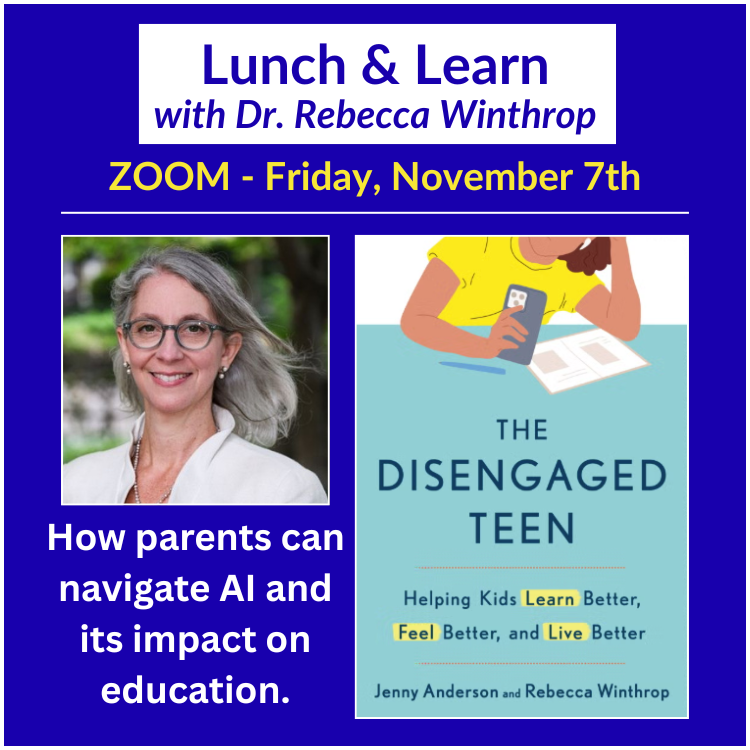Artificial Intelligence has quickly woven itself into everyday life. It helps organize us, makes us more efficient, expands our capacity and our accuracy, and drives innovation. Many of us are already using it at work, often without realizing it. The pace of its adoption has been breathtaking — and like any powerful new tool, it inspires both wonder and caution.
At Baxter, curiosity and problem-solving are in our DNA. We are a STEM-focused community, but more than that, we are a community of question-askers. When something new captures our attention, we want to understand it and ask what it means for the world around us. AI has sparked exactly that kind of thinking. What is the right way to use it? Where might it be most beneficial? And when might it be less than ideal — and why?
Those questions have shaped rich discussions among our teachers, students, and families. We’ve been listening to a range of voices and perspectives to better ground our understanding. One that’s recently risen to the top is Jonathan Haidt, the social psychologist behind The Anxious Generation. His research on youth mental health and technology use has reshaped how many parents think about the age children first receive smartphones. Now, Haidt is turning his attention to AI — warning that it could prove even more addictive and disruptive than social media. His recent interview in USA Today is worth a thoughtful read.
Still, Baxter has always embraced innovation. We believe in the power of new tools when used with humanity and purpose. This summer, we had the privilege of welcoming Dr. Kate Moore, a research scientist at MIT’s STEP Lab and Education Arcade, who works with educators nationwide to explore how AI can be taught responsibly — both as a technical system and as an ethical landscape. Her visit sparked ongoing classroom conversations, exemplified by our own Ruby Peterman ‘21, Computer Science teacher and Harvey Mudd graduate. Ruby is guiding students to think critically about how AI functions, what it can do, and where it should be used with care. Around the same time, an article in Wired caught our attention — it explored how AI is reshaping the creative instincts of young people, raising both possibilities and questions that feel particularly close to our mission.
Now, we’re extending that conversation beyond our walls. On November 7, Baxter will host Dr. Rebecca Winthrop, co-author of The Disengaged Teen and senior fellow at the Brookings Institution, for a virtual Lunch & Learn on parenting and AI. Her recent New York Times article, “Parents, Your Job Has Changed in the A.I. Era,” captures what so many of us are feeling — that technology is evolving faster than our ability to fully understand it, and that our role as adults is to guide children not just in how to use these tools, but in how to live well alongside them.
AI is changing how we work, how we think, and how we learn. But it also challenges us to stay grounded in what makes us human — empathy, curiosity, and connection. As educators and parents, our responsibility is not just to prepare students for the tools of the future, but to help them build the judgment and ethical awareness to use those tools wisely.
We hope you’ll join us for this important conversation with Dr. Winthrop. Together, we can continue to ask the right questions — and model for our students what it means to lead with both curiosity and conscience.
*Register Here for November 7th, 12pm by ZOOM.
#BaxterAcademy #STEMEducation #AIinEducation #RealWorldNow #ParentingInTheAIEra #EthicalAI #FutureofLearning #InnovationWithPurpose #MaineEducation #RebeccaWinthrop #BrookingsInstitute


